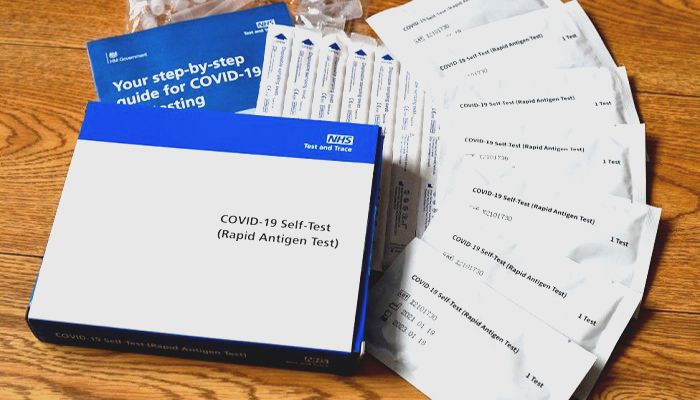
Desk Report
Publish: 11 Apr 2021, 10:53 pm

Posts spreading unverified theories about the pandemic continue to spread on social media platforms.
We've examined the latest wave of false information covering subjects including Covid testing kits and vaccines.
Lateral flow tests for coronavirus are becoming widespread in workplaces and schools, but viral Facebook posts are incorrectly claiming that they are a cancer risk.
The videos and photos claim that they contain ethylene oxide, a known carcinogen. The packaging for the NHS test kits says "sterilised in ethylene oxide", but this only tells part of the story.
The Department of Health and Social Care told us that while the chemical is used in gaseous form to sterilise test swabs, the amounts used are well within safety limits and are "rigorously tested and are safe to use on a regular basis".
In fact, up to half of all US medical devices are sterilized with ethylene oxide, which is an effective method that doesn't damage equipment. Further stages in the sterilization process remove the gas almost entirely.
The US Centers for Disease Control says that while acute exposure to the chemical - many times greater than any residual chemical that might be left in a test swab - can increase the risk of cancer, these tiny amounts are not harmful.
Misunderstanding miscarriages
A blog post claiming that rates of miscarriage "as a result" of receiving a Covid-19 vaccine have increased by 366% has been shared widely on social media.
There is no evidence that Covid-19 vaccines can increase the risk of miscarriage.
The figures used in the blog post are a distorted interpretation of data from the yellow card scheme of the UK medicines regulator, the MHRA. The scheme allows health professionals and the public to report medical incidents or suspected side effects of medicines so that their quality and safety can be monitored and very rare side effects picked up.
Data showing a miscarriage occurred after a vaccine does not mean that the two events are linked.
Miscarriage is sadly very common, and among women who know they're pregnant, about one in eight pregnancies will end in miscarriage, according to the NHS.
Identifying miscarriages that happen after a vaccine allows the MHRA to assess whether the number of miscarriages in the vaccinated population is any higher than usual.
The claim that miscarriages among vaccinated people have increased by 366% is taken from an increase in the number of miscarriages reported to the yellow card scheme since Covid-19 vaccines first started being rolled out in December and January. It doesn't take into account the fact that millions of more people have been vaccinated since January - which would lead to an expected increase in reports to the yellow card scheme.
In a response to the Reuters news agency about the claims, the MHRA said: "There is no pattern to suggest an elevated risk of miscarriage related to exposure to the Covid-19 vaccines in pregnancy."
But it added that current advice does not routinely recommend Covid-19 vaccines for pregnant women because of limited data and that individuals at high risk from the virus could talk to a doctor about vaccination.
Source: BBC
Subscribe Shampratik Deshkal Youtube Channel
© 2024 Shampratik Deshkal All Rights Reserved. Design & Developed By Root Soft Bangladesh